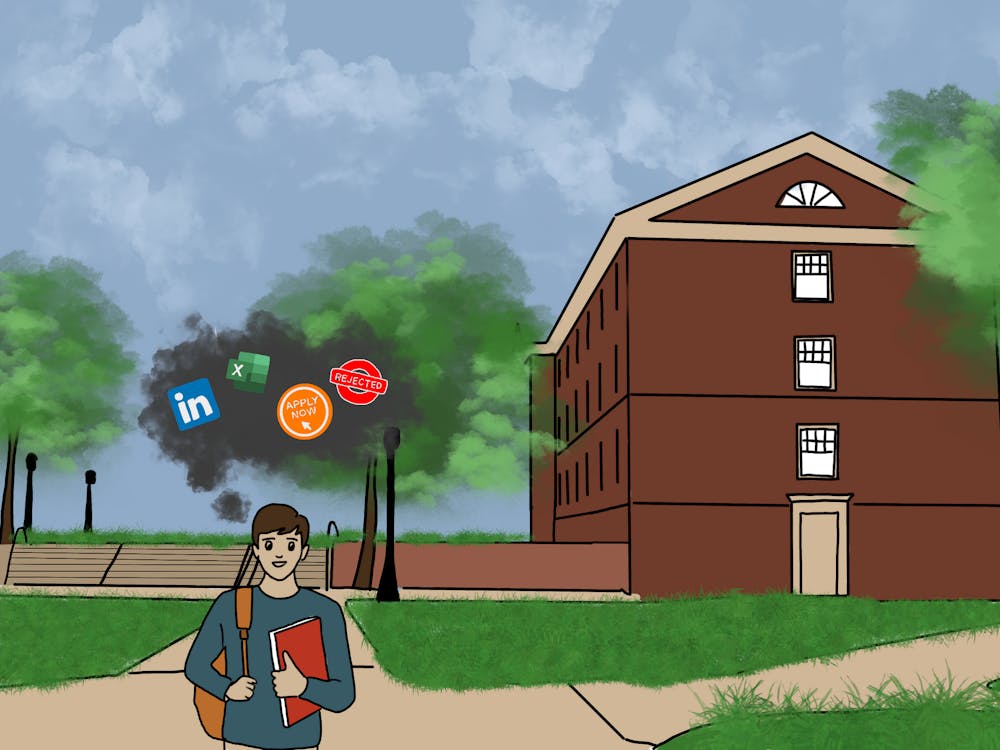It’s finally November here in Charlottesville, and we all know what that means. Students crowd together in libraries before finals like chickens in a factory farm awaiting slaughter, first-years walk a mile to frats in freezing cold weather without jackets (it’ll ruin the ‘fit) and nobody has used hand sanitizer since their mom stopped stuffing it in their backpack. These factors combine to create the ideal conditions for the most sinister of all diseases to flourish — the first-year plague.
Most years, it isn’t a problem. It affects a few thousand of us nobodies and we go to Student Health, only to be told to make like a straw and suck it up. But this year, it has grown more powerful than ever before, and a celebrity has been caught in its malicious grasp. The first-year plague has infected our Lord and Savior Ariana Grande.
Grande has become somewhat of a patron saint of Charlottesville thanks to her charitable contributions over the years. After the white supremacist rally of 2017, she blessed us with her performance at A Concert for Charlottesville. This event raised a significant amount of money to promote healing among victims and the city as a whole. Then, she found it in her heart to come back to Charlottesville to perform for our lowly a—es the most glorious concert ever to grace the John Paul Jones Arena. In return, we infected her with the motivation destroying and GPA lowering first-year plague.
Via a series of heartbreaking Instagram stories, Grande revealed that she’s been feeling sick since her mid-October show in London, but she has been pushing through the pain. That is, until she visited Charlottesville. Her weakened immune system only made it easier for the first-year plague to strike. Leading medical experts agree that one of the gremlins who lives in dorms must have gotten too close to her, or perhaps just screamed too loudly, and their pathogen-ridden saliva molecules traveled through the air and into the multi-platinum, Grammy Award winning artist.
Our Queen posted a picture in which she is steaming her throat and said that she couldn’t swallow or lift her head. As all U.Va. students know, throat and respiratory issues are two of the most common indicators of plague infection. What makes the plague so deadly, though, are the unique symptoms that linger even after the common cold-like symptoms cease. One of the tell-tale signs of first-year plague infection is a severe lack of motivation, often rendering the patient unable to lift their head from their pillow in order to make it to their 9 a.m. class.
Sadly, she had to cancel her Nov. 17 concert in Lexington, Ky. This is only further evidence that she’s been infected with the plague, as nearly all late-term sufferers find themselves cancelling plans at the last minute in favor of some extra time in bed watching “Friends.”
If her strain of the disease progresses along the same course as the typical U.Va. variety, she may experience the following:
- Acute anxiety stemming from impending exams
- Existential fear of not measuring up to her successful peers
- Nicotine addiction, often alleviated by JUUL usage
Treatment consists of the following:
- Shamelessly begging her TA for extra credit, even though it clearly states “no extra credit” in the syllabus
- Stress-eating six slices of Christian’s pizza
- Shotgunning an alarming amount of White Claws to take the edge off
Hopefully, she’s able to make a full recovery by winter break, and this absolute travesty is righted.
Katie McCracken is a Humor Columnist at The Cavalier Daily. She can be reached at humor@cavalierdaily.com.







